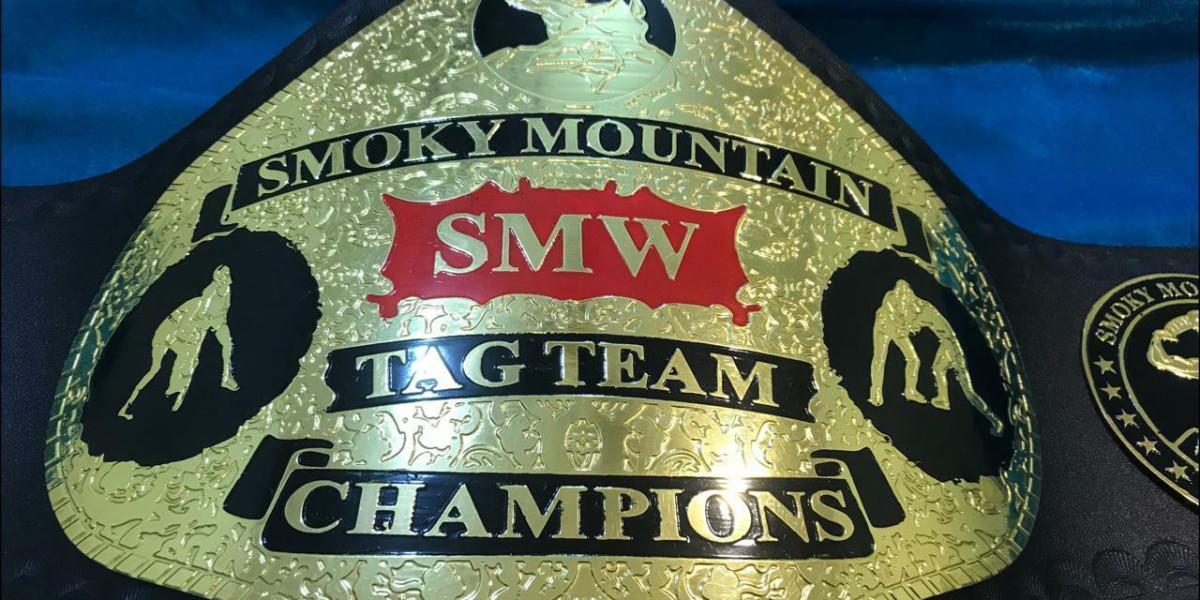Smoky Mountain Wrestling (SMW) is an important chapter in the history of professional wrestling, known for its hard-hitting action and traditional southern wrestling style. Founded in the early 1990s, SMW quickly became a beloved regional promotion, providing a platform for many wrestling SMW Smoky Mountain . Though it operated for only a few years, the impact of SMW resonates to this day, with fans and wrestlers alike remembering the promotion’s commitment to old-school wrestling and storytelling.
The Birth of Smoky Mountain Wrestling
1. Founding and Vision
Smoky Mountain Wrestling was founded in 1991 by veteran wrestling promoter Jim Cornette. Known for his extensive experience in wrestling, including time with Jim Crockett Promotions and the World Wrestling Federation (WWF), Cornette wanted to create a wrestling promotion that harkened back to the traditional southern style of wrestling. His vision for SMW was to provide family-friendly entertainment with a focus on in-ring action, compelling storylines, and larger-than-life characters.
Set in the Appalachian region, primarily in Tennessee, Kentucky, West Virginia, and Virginia, SMW quickly established itself as a grassroots wrestling promotion that catered to local audiences, with many events held in high school gyms and smaller venues.
2. Traditional Southern Wrestling
SMW emphasized a traditional approach to wrestling, which set it apart from the glitzy, over-the-top theatrics of the WWF or WCW at the time. The promotion focused on basic wrestling fundamentals, strong technical matches, and classic "good vs. evil" storytelling. Fans who preferred wrestling without the flashy gimmicks found a home with SMW.
3. Television Presence
A crucial factor in the rise of Smoky Mountain Wrestling was its weekly television program, which aired on local stations throughout the Smoky Mountain region. The TV show was key to building the SMW brand, as it featured interviews, promos, and in-ring matches that helped develop storylines. Jim Cornette’s involvement as both promoter and on-screen manager helped bring credibility to the product, drawing in larger crowds and viewership.
Key Wrestlers and Personalities of SMW
1. The Rock 'n' Roll Express (Ricky Morton and Robert Gibson)
One of the most popular tag teams in wrestling history, the was a cornerstone of Smoky Mountain Wrestling. Known for their high-flying, fast-paced style and immense fan support, Morton and Gibson had a series of memorable matches in SMW, particularly against their longtime rivals, The Heavenly Bodies.
2. The Heavenly Bodies
Managed by Jim Cornette, (consisting of Tom Prichard and Stan Lane, and later Jimmy Del Ray) were one of the top heel teams in SMW. Their feuds with the Rock 'n' Roll Express were legendary, offering some of the best tag team wrestling of the era. Their matches were a showcase of the classic southern wrestling style, with plenty of action and storytelling.
3. "Dirty" Dutch Mantell
Dutch Mantell, a veteran wrestler known for his gritty, no-nonsense style, was a key figure in SMW. Whether as a wrestler or commentator, Mantell brought authenticity to the promotion and helped elevate younger talent. His character work and in-ring psychology made him a fan favorite, despite often playing the villain.
4. "The Nature Boy" Buddy Landel
Buddy Landel was another notable talent in SMW, portraying a cocky, arrogant heel with a strong in-ring presence. Known for his charisma and resemblance to Ric Flair, Landel had several key storylines and feuds in SMW, including title pursuits and clashes with other top wrestlers.
5. Tracy Smothers
As one of the top babyfaces in Smoky Mountain Wrestling, became a fan favorite for his southern charm and fighting spirit. He played a crucial role in many of SMW’s major storylines, often portraying the underdog fighting against the odds. His connection with the local fans made him one of the most beloved figures in the promotion.
6. Jim Cornette
While Jim Cornette was the mastermind behind the scenes, he also played an essential role as an on-screen personality. As a manager, Cornette’s sharp wit and ability to generate heat made him one of the most hated (and entertaining) figures in the promotion. His managerial duties with The Heavenly Bodies and other heel wrestlers were instrumental in developing SMW’s biggest rivalries.
SMW Championships and Titles
1. SMW Heavyweight Championship
The SMW Heavyweight Championship was the top title in the promotion and was held by some of the biggest names in wrestling at the time. Wrestlers like " were among the champions, and the title matches were often the highlight of SMW’s major events.
2. SMW Tag Team Championship
The SMW Tag Team Championship was a highly prestigious title in the promotion, with teams like the Rock 'n' Roll Express and The Heavenly Bodies frequently vying for the belts. Tag team wrestling was a significant focus in SMW, with many matches regarded as some of the best in wrestling history.
3. SMW Beat the Champ Television Title
A unique feature of Smoky Mountain Wrestling was the Beat the Champ Television Title, which added an extra layer of excitement to the weekly TV shows. The champion would defend the title on TV, with a cash prize awarded for successful defenses. If the champion could defend the title five times in a row, they earned a bonus, but if they lost, the new champion would begin the cycle anew.
Major Feuds and Rivalries
1. Rock 'n' Roll Express vs. The Heavenly Bodies
This classic feud defined much of SMW’s early success. The rivalry between the high-flying Rock 'n' Roll Express and the villainous Heavenly Bodies brought fans to their feet and drew large crowds to the live events. The matches between these two teams were intense and often ended in dramatic fashion, with Jim Cornette’s involvement adding to the drama.
2. Brian Lee vs. Dirty White Boy
Another major rivalry in SMW was between (Tony Anthony). Their battles over the SMW Heavyweight Championship were physical and brutal, and they played a major role in elevating the prestige of the title. Their clashes were a perfect example of the traditional southern wrestling style that SMW championed.
The Decline and Legacy of SMW
1. Closure in 1995
Despite its passionate fan base and strong talent roster, SMW faced financial difficulties that led to its closure in 1995. The rise of national wrestling promotions like WCW and the WWF made it difficult for regional promotions like SMW to thrive. Additionally, the changing landscape of wrestling, with its shift toward more entertainment-driven programming, made SMW’s traditional approach less appealing to mainstream audiences.
2. Legacy in Wrestling History
Although Smoky Mountain Wrestling was relatively short-lived, its legacy in the wrestling world is undeniable. Many wrestlers who appeared in SMW went on to achieve great success in larger promotions, including Chris Jericho, Kane (Glen Jacobs), and Al Snow. The promotion also helped preserve the southern wrestling tradition, with its emphasis on storytelling, in-ring psychology, and crowd engagement.
SMW’s Influence on Modern Wrestling
1. Old-School Wrestling Resurgence
In recent years, there has been a resurgence of interest in old-school wrestling, with fans and promotions alike revisiting the traditional styles and storytelling that SMW embodied. The rise of independent promotions and streaming services has allowed newer generations of fans to discover the unique charm of Smoky Mountain Wrestling.
2. Jim Cornette’s Continued Influence
Jim Cornette’s work in SMW remains a significant part of his legacy in professional wrestling. His influence on wrestling booking, storytelling, and his no-nonsense approach to promoting have left a lasting impact on the industry.
Conclusion
Smoky Mountain Wrestling may have been a regional promotion with a brief lifespan, but its impact on the wrestling world is still felt today. From its commitment to traditional southern wrestling to the legendary feuds and unforgettable wrestlers who graced its ring, SMW holds a special place in the hearts of wrestling fans. Its legacy lives on through the stars it produced, the stories it told, and the fans who continue to celebrate its contribution to professional wrestling history








